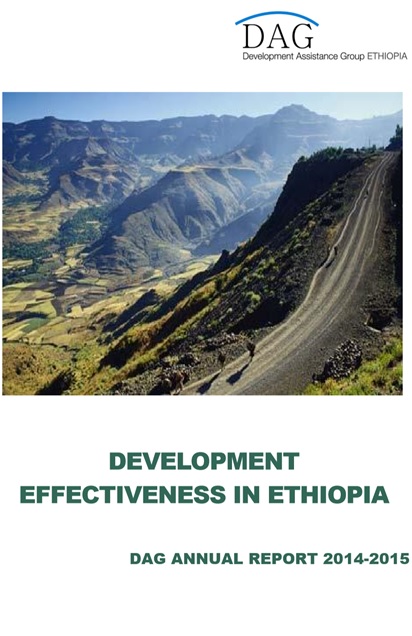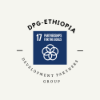Breadcrumb

This report provides a summary of activities carried out by members for the period July 2014 - June 2015. In this period, DAG members together provided over USD 3.9 billion in grants and concessional finance to Ethiopia. The DAG also welcomed Switzerland as a new member of the group in May 2015, increasing the total number of DAG members to 28.
For most of the year, the DAG focused on supporting the design of the country’s second Growth and Transformation Plan (GTP II: 2015-2020) and the Federal and Regional elections. DAG members and sector working groups actively provided input on future GTP II indicators. Ethiopia’s Aid Management Platform (AMP) was also upgraded and the data quality in the platform continues to improve and become more user-friendly.
Key highlights of the various activities of working groups in 2014-15 include:
The Governance Technical Working Group organised four missions to resettlement areas in Somali, South Omo, Gambella, and Beneshangul-Gumuz regions. The Group also reflected on how best to position itself for future missions to resettlement areas. Since late 2010, the DAG has emphasized the importance of following international good practice on resettlement from design and consultation through to implementation, monitoring, evaluation, grievance, and redress mechanisms.
The One WASH National Programme’s Consolidated Account was launched in November 2014, providing a unique modality for partners to directly fund WASH activities.
The Private Sector Development and Trade working group led discussions on critical issues such as trade logistics and access to finance and facilitated a learning event through visits to manufacturing firms and an industrial park.
The Transport Sector Working Group supported a study on the evolution of the transport sector in Ethiopia, including analysis on the increasing unit cost of the roads infrastructure.
The Rural Economic Development and Food Security working group recently added a technical committee that concerns livestock, both in highland and lowland areas. This technical committee is anchored by the Drought Resilience and Sustainable Livelihoods Programme.
The Gender Working Group organised a (1) a side event in partnership with the Government of Ethiopia at the Third Financing for Development Conference in Addis Ababa; and (2) policy dialogue around the implementation of UN Security Council Resolution 1325 on women, peace and security in Ethiopia.
